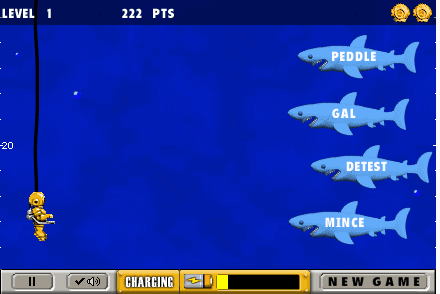
Games are a terrific way to practice typing, and 10 Fast Fingers is a great place to start. The brain is forced to establish new neuro-pathways in order to assimilate the learnt pattern and make the new habit second nature through repeated typing exercise. Students must practice, practice, and practice to improve their typing speed. Instead of utilizing typing to help them learn, it becomes the focus of their learning, providing an additional layer of difficulty and changing the focus of learning away from the final product and toward the medium. Typing becomes a difficult challenge for slow typers, and it can seriously impede the learning process. Your general focus is disrupted every time you look down to search for keys on your keyboard, and depending on how quickly you can pick up where you left off, going back and forth between the screen and the keyboard can take a significant toll on your focus and attention. Learning to type fluently has a number of cognitive advantages, the most important of which is an increase in one’s level of focus. From an educational standpoint, the amazing thing about 10 Fast Fingers is that as children learn to write quickly, they also get to practice the most popular words in a language and expand their vocabularies. In today’s knowledge economy, it’s not just about learning to type it’s also about learning to type quickly. Fluency in typing or keyboarding has become a crucial ability for 21st-century students.

If you're really having trouble, you may just have the wrong type of keyboard for a tough typing style. It has very lower travel scissor switch keys that are just amazing. I found I was so much faster on my laptop keyboard, so I dug out the Microsoft Designer keyboard I have. They're very high travel, heavy keys (for a computer keyboard at least, I learned to type on a mechanical keyboard so I would laugh at calling those "heavy keys"). I have a mechanical keyboard with cherry blues. Everyone has trouble with these keys I think, you just need to train your fingers to do it. I used to move my hands and use other fingers for these keys, but after about a week I was hitting them confidently with pinkie fingers. This is very frustrating and it just takes time and practice, again. P and Q are really awkward, Z is next to impossible and I can never seem to find /. Frustration is part of that process, so keep at it.Īlso, if you're anything like me, those pinkie fingers are really weak. If I can break 30 years of muscle memory with a few weeks, you can do the same. My fingers and hands are moving a lot less and I'm a lot more confident with my typing. It's not impossible, and in fact it only took these few weeks of training (mostly just normal typing with a conscious effort to use the correct fingers) to get back to about 80wpm with a comfortable error rate. I learned to type when I was like 4 so I have 30 years of bad habits to break.
:max_bytes(150000):strip_icc()/10fastfingers-6a0a4c0a773d4ac38b99f7b623fbef2d.png)
Just 2 or 3 weeks ago I was frustrated with my terrible typing skills. Do not allow yourself to continue with the bad habits and eventually you'll break them and be faster and more accurate because of it. Punish yourself if you use the wrong fingers, erase the entire word and start again. Make a conscious effort to use the correct fingers. It'll be slow and awkward because you're fighting your own muscle memory here, but it's what needs to be done. Go back to the beginning, re-train every single key with the correct fingers. This is the result of bad habits, of bad training, or years of bad practice.
TEN FAST TYPING FINGERS HOW TO
You tell yourself "type a p" and your brain says "right, I know how to do that, I've done it a few thousand times before, just take the ring finger on the right hand, move it right and up and press the p key." You don't think about it, your brain just knows how to do it because that's how you've trained it.

Most of what you're fighting with is probably muscle memory.


 0 kommentar(er)
0 kommentar(er)
